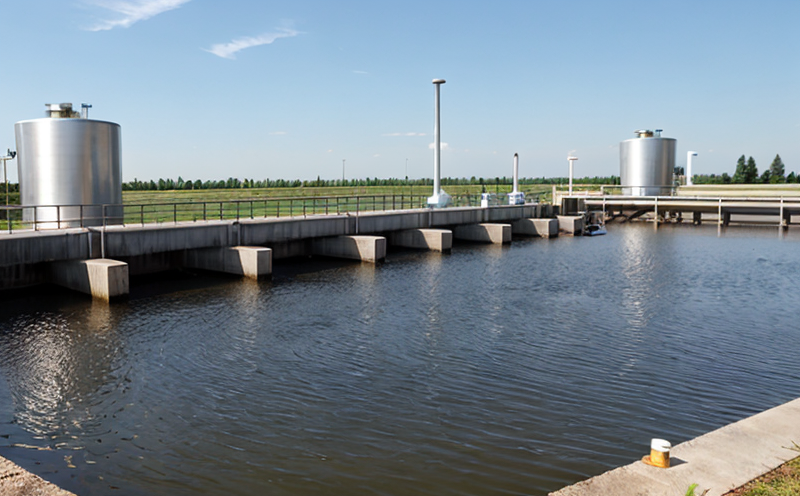Water & Wastewater Microbiological Testing
The analysis of water and wastewater samples to identify microbial content is critical in ensuring public health and environmental safety. This testing plays a pivotal role in the regulation, monitoring, and improvement of water quality standards globally.
Waterborne pathogens can lead to severe illnesses such as cholera, typhoid fever, and dysentery if not properly controlled. Wastewater treatment facilities must ensure that their processes are effective at removing harmful microorganisms before releasing treated effluent into the environment or municipal water systems.
The primary objective of microbiological testing in these areas is to detect and quantify specific pathogens, indicator organisms, and overall microbial load present within the sample. This information helps regulatory bodies enforce compliance with stringent guidelines set by organizations like WHO (World Health Organization), EPA (Environmental Protection Agency), and APHA (American Public Health Association).
Advanced analytical techniques such as quantitative PCR (qPCR), next-generation sequencing, and traditional culture methods are employed to achieve accurate results. These approaches allow laboratories to not only identify but also quantify microorganisms down to single-cell levels.
The importance of reliable microbiological testing cannot be overstated; it directly impacts human health by preventing waterborne diseases and supports sustainable environmental practices that protect aquatic ecosystems from contamination.
| Method | Description | Application |
|---|---|---|
| Quantitative PCR (qPCR) | A highly sensitive and specific technique for detecting and quantifying target DNA sequences. | Detection of bacteria, viruses, and other pathogens in water samples. |
| Culture Methods | Traditional approach involving growth of microorganisms on agar plates or in liquid media. | Broad spectrum detection including non-pathogenic organisms. |
| Next-Generation Sequencing (NGS) | High-throughput sequencing technology providing detailed insights into microbial communities. | Comprehensive analysis of complex microbial ecosystems in wastewater treatment processes. |
The selection of appropriate methodologies depends on the specific requirements and objectives of each project. For instance, qPCR might be preferred when rapid results are needed for regulatory compliance checks, while NGS could provide deeper insights into microbial diversity over extended periods.
Scope and Methodology
The scope of our microbiological testing services encompasses a wide range of parameters relevant to both potable water supplies and wastewater management. Our team utilizes advanced laboratory equipment and standardized protocols compliant with internationally recognized standards such as ISO 16140-3:2015 for drinking water quality.
We offer comprehensive testing packages designed to meet the diverse needs of our clients, from routine monitoring tasks to complex research projects aimed at enhancing treatment efficiency or identifying emerging contaminants. Whether you require baseline assessments or ongoing surveillance programs, we have tailored solutions available to suit your unique circumstances.
Our methodologies incorporate multiple stages including sample collection, transport conditions, pretreatment procedures, and final analysis steps. Each step follows strict guidelines dictated by relevant regulatory bodies ensuring consistency across all samples processed.
Quality and Reliability Assurance
At [Lab Name], maintaining the highest standards of quality assurance is paramount to our operations. We adhere strictly to ISO/IEC 17025 accreditation requirements which mandate stringent controls over every aspect from personnel qualifications to facility design.
To further bolster reliability, we employ rigorous internal audits alongside third-party inspections conducted by accredited bodies. Continuous training programs ensure that all staff members remain up-to-date with latest industry practices and emerging trends in analytical science.
Our commitment extends beyond mere adherence; it includes proactive measures aimed at preventing errors from occurring in the first place through robust quality management systems. These efforts translate into consistently accurate results delivered within agreed timelines, thereby fostering trust between us and our clients.
Environmental and Sustainability Contributions
The work we do in water & wastewater microbiological testing contributes significantly towards environmental conservation initiatives. By providing robust data on microbial presence and activity levels within aquatic environments, we enable stakeholders to make informed decisions regarding resource allocation strategies.
Our insights help optimize resource use while minimizing adverse impacts on natural habitats by informing better design choices for future infrastructure projects or operational adjustments at existing facilities. Additionally, our findings assist in tracking progress towards sustainability goals established under frameworks like UN SDGs (Sustainable Development Goals).





